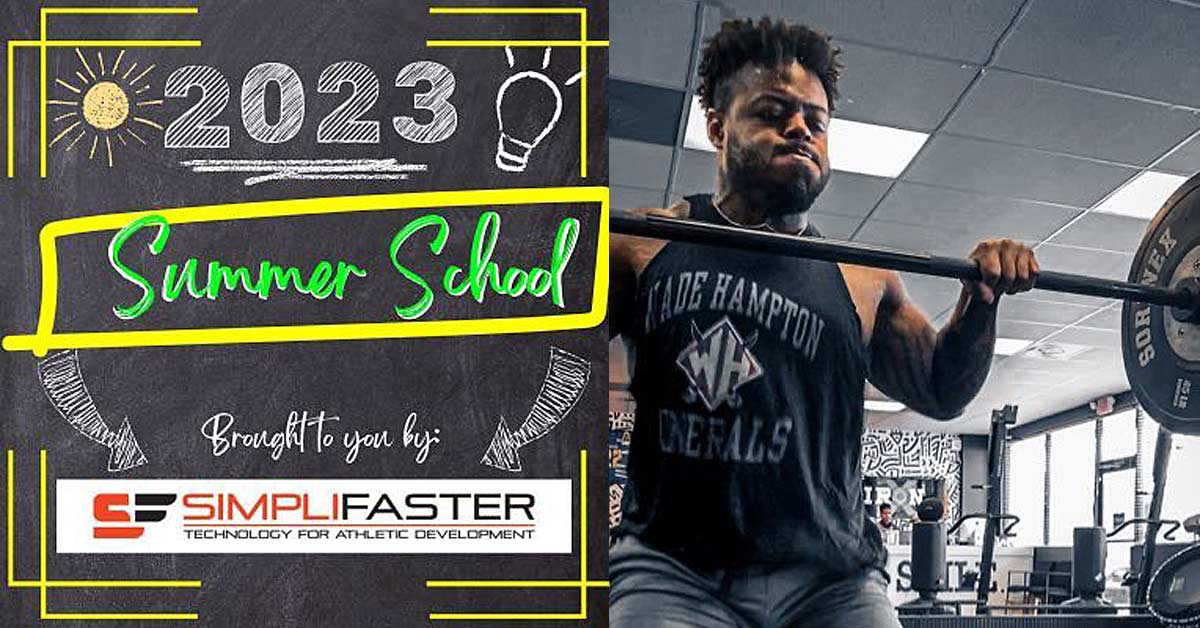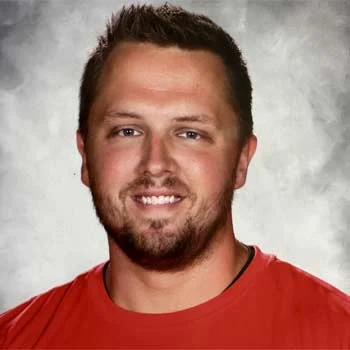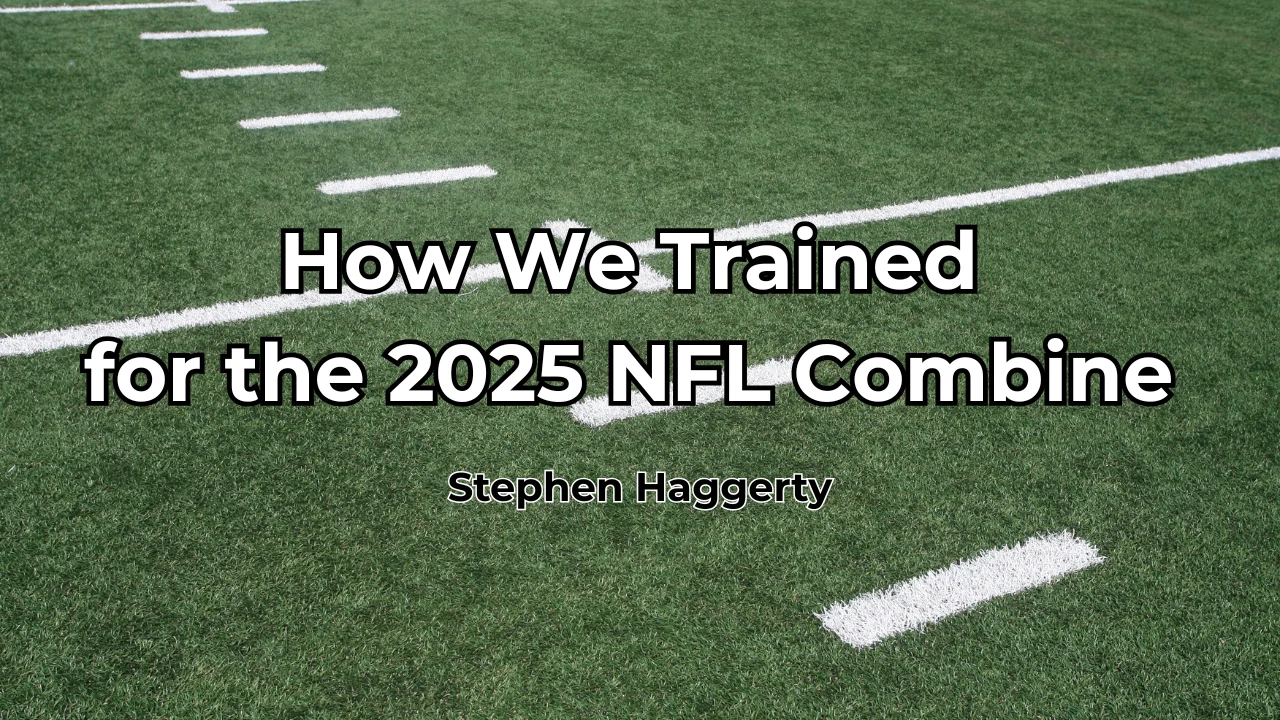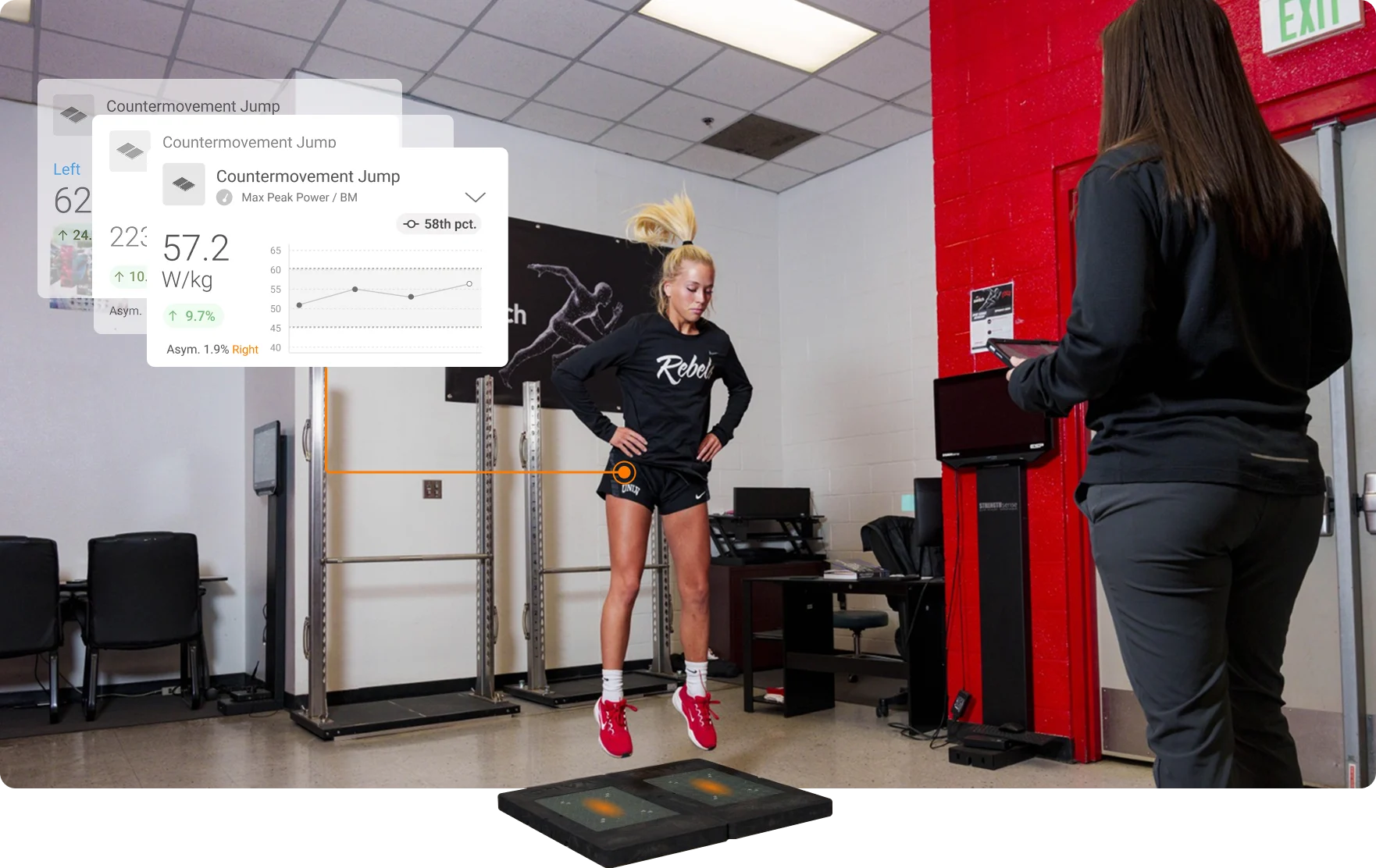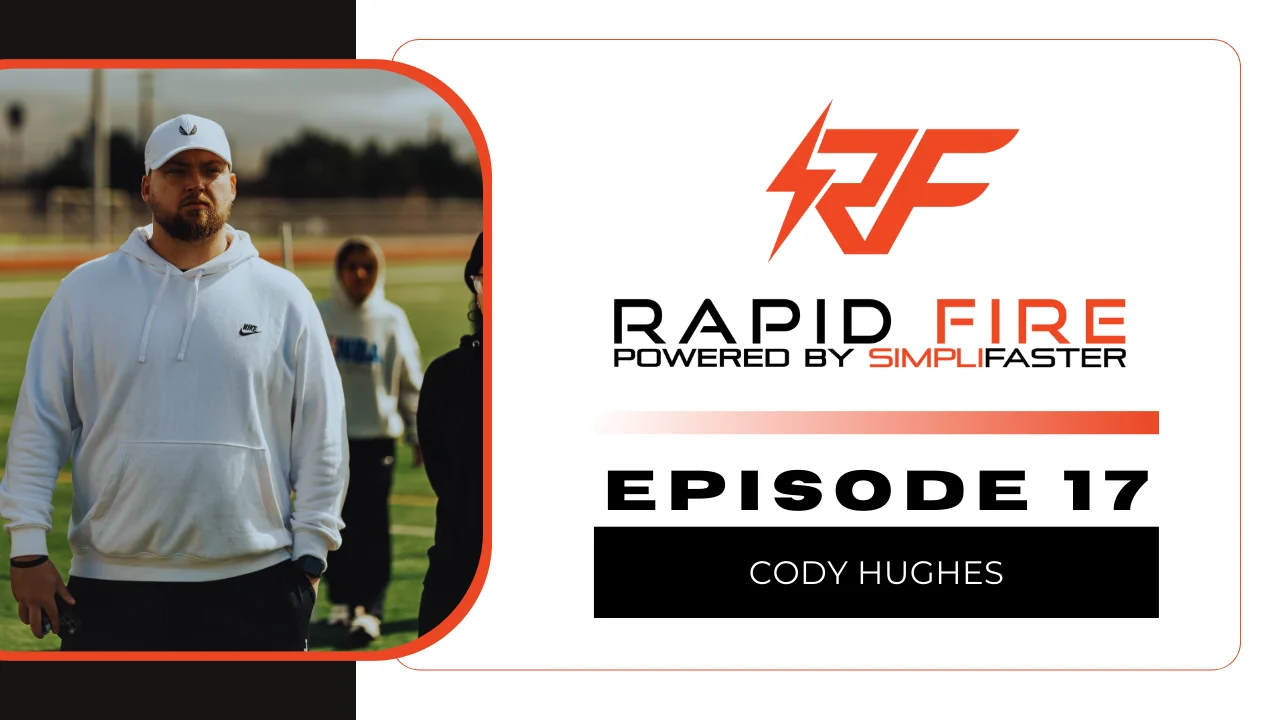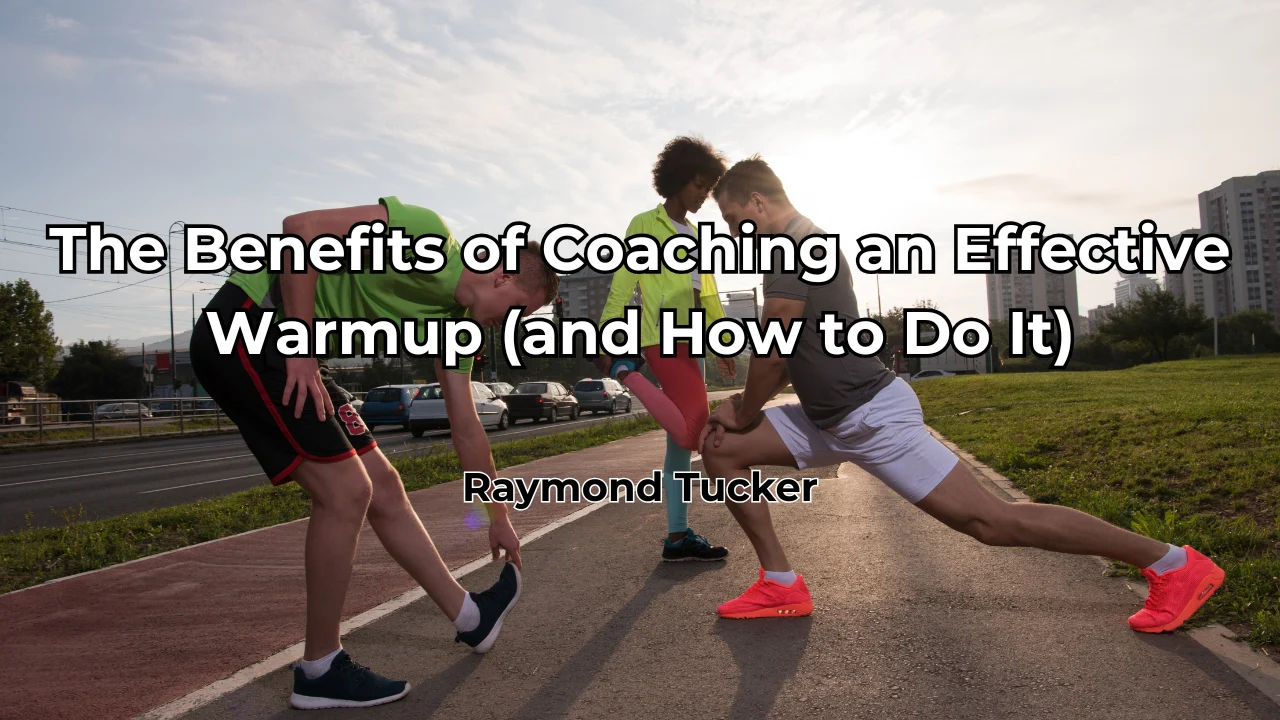Occasionally you meet someone whose energy is infectious, even from a distance—Coach Antwann McCray is that type of person. Energy, however, isn’t the only thing that Coach McCray brings to the table: everyone participating live for Episode 3 of Summer School witnessed how Coach McCray’s thorough, thoughtful programming considerations—mixed with his passion for athletes and building relationships—provide all the foundations of a highly successful coach ready to execute a powerful athletic development model.
The development of this episode begins as a representation of this industry and the many positive potential benefits of social media. I’ve interacted with Coach McCray via Twitter and observed his program from afar, but we finally met in person at the Plae Clinic in Charleston, SC. In our limited time together, it was apparent that there was something special about him; so, naturally, when there was a cancellation this week with our scheduled presenter, Coach McCray was the perfect candidate. On a two-day notice, he stepped up and shined in his first speaking opportunity.
Coach McCray is the strength and conditioning coach for high school and college groups at 11.11 Elite Training in Greenville, SC and is also taking over the strength and conditioning program as a full-time S&C at a local high school. Coach is a football alum of Gardner-Webb and Lenoir-Rhyne, where he majored in exercise science while competing in the NCAA. His first professional opportunity came training middle school athletes, where he had the opportunity to develop his coaching philosophy and refine his coaching. Now, as a soon-to-be high school S&C responsible for all sports, his passion for athletes and rich background of diverse training styles will pay off.
Identifying and Developing Your Philosophy
In this episode, we discuss the specific tenets of Coach McCray’s training approach. These include:
- RFD development’s seasonal timing.
- Matching exercise and stimulus selection with fieldwork.
- Selecting training priorities across all sports.
For coaches starting out in this industry—or even those who have been in the game for a while—establishing and communicating a coaching and training philosophy can help athletes, parents, and other coaches understand what you believe, what your expectations are, and the way that you will train.
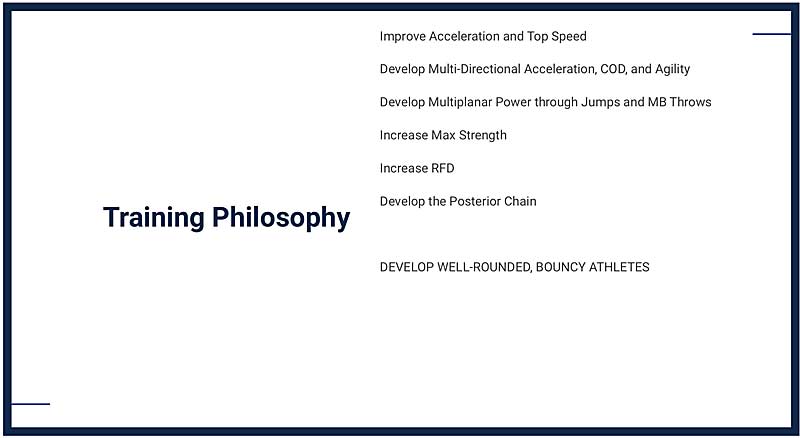
Building an exercise library for desired traits that fit your program constraints is vital to staying on the map of your training philosophy. Often, in seeking the implementation of ‘new’ principles or movements, coaches can stray from their philosophy. This is not to say that the philosophy or method of thinking should never be evaluated or updated, but identifying a component of a training block and rationalizing how it fits your program’s desired qualities is a critical necessity of any athletic program. Essentially, coaches must be able to answer the question: “Which tenet of my training philosophy does this exercise/stimulus develop?”
Often, in seeking the implementation of ‘new’ principles or movements, coaches can stray from their philosophy. Share on X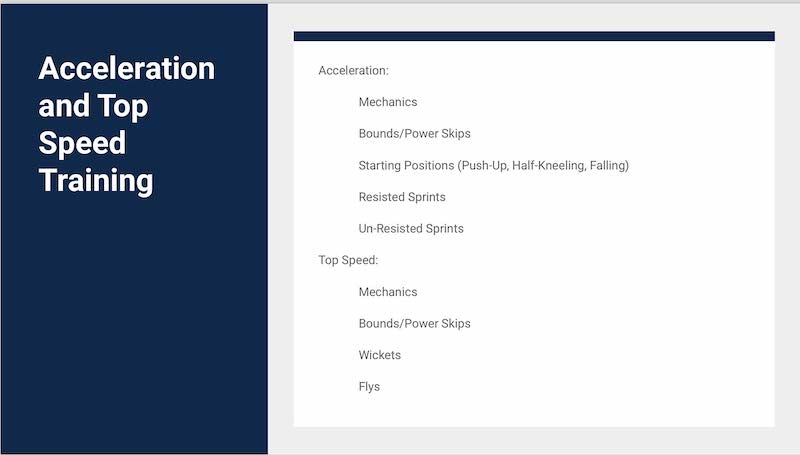
Video 1. This week’s full session with Coach Antwann McCray.
Panel Q&A
This session came with many questions as the panel sought to dig deep into understanding precisely who our presenter was and his system. This week’s panel included Elton Crochran from Veterans Memorial HS in San Antonio and Kyle Jacksic, Director of Strength and Conditioning at Ardrey Kell High School.
Coach Croc
Early in the session, Coach Crochran asked “what do you want your identity in this industry to be?”
Coach McCray: “We often feel the need to have this big, raspy coaches voice to project a sense of control, but what we as coaches must be is whom our athletes need most. My playing career is over, and I cannot live the rest of my career through my athletes. I must put the athlete first and their needs, their personality, their goals—not mine.”
My playing career is over and I cannot live the rest of my career through my athletes. I must put the athlete first and their needs, their personality, their goals—not mine, says @AMacAOM. Share on XKyle Jacksic
Coach Jacksic asked: “When are you working RFD (Rate of Force Development) in the competitive calendar for your training?”
Coach McCray: “RFD is a staple in our program. I believe that while you may identify one portion of your philosophy as a goal for a block—such as max strength—that doesn’t mean that the only stimulus we train for during that block is max strength. We work RFD into everything we do—whether moving light weight fast or a heavier load with maximal intent, RFD is involved with each of our sessions.
Dan Mullins
Coach Mullins asked: “As a coach who has been in the private sector and is now fully experiencing the high school team setting, as you program for and implement your training with the high school, how can we push past the good coach-bad coach relationship of the public and private sector?”
Coach McCray: “The most important piece to this is that both parties must remember we aren’t in it to prove which coach is the best; we’re in it to put the athlete first and do what’s best for them. That has to be where the conversation starts. From there, identifying holes in the team setting that, for whatever reason, can’t be filled because of time, technique, space, whatever it is, and the private coaches can start there to fill those needs. Team coaches who communicate well can identify those for the coaches so that when the athlete goes to the private facility, the coach is already aware of areas that can be supportive and not take away from the team training.
Looking Ahead to Session 4
For Session 4, we head to the Lonestar state to hear from Coach Tanner Swinford, the Director of Strength and Conditioning at Rockport-Fulton High School, who practices what he preaches and programs! Register here to join the email list for the link sent out each Sunday. See you all Tuesday, June 27 at 8p.m. EST.
Since you’re here…
…we have a small favor to ask. More people are reading SimpliFaster than ever, and each week we bring you compelling content from coaches, sport scientists, and physiotherapists who are devoted to building better athletes. Please take a moment to share the articles on social media, engage the authors with questions and comments below, and link to articles when appropriate if you have a blog or participate on forums of related topics. — SF

